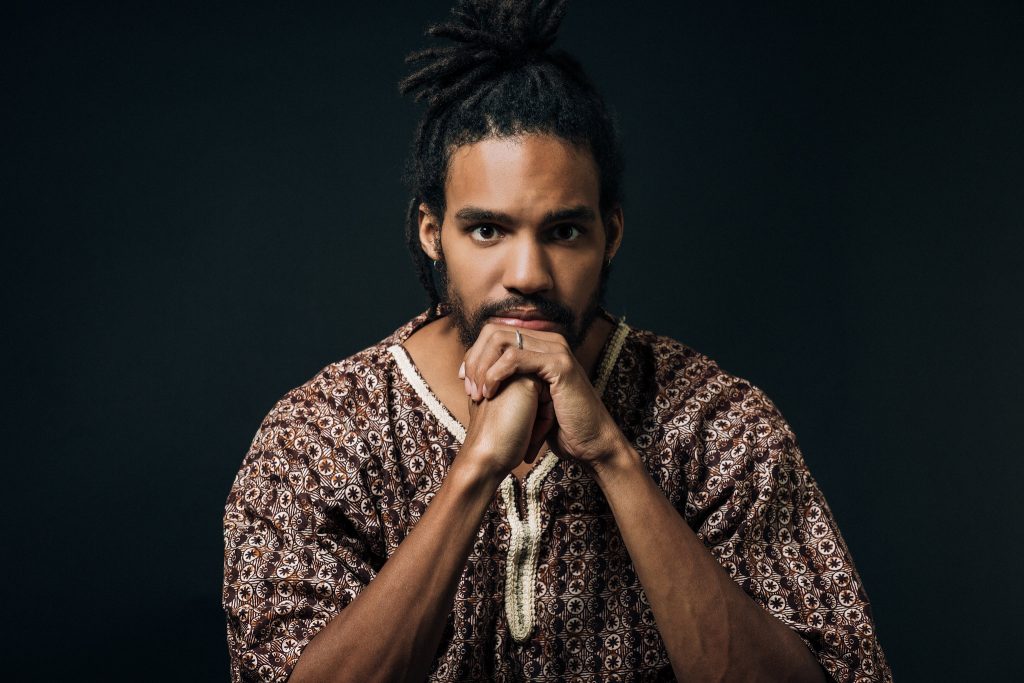 Once a month, young poets gather at the Beyù Caffè in Durham. A teen walks up to the mic, begins reading, voice strong, her poem-in-progress. Partway through, she temporarily stumbles over her words.
Once a month, young poets gather at the Beyù Caffè in Durham. A teen walks up to the mic, begins reading, voice strong, her poem-in-progress. Partway through, she temporarily stumbles over her words.
Pierce Freelon ’06 and the café patrons rub their hands together. It’s a way to show support and to encourage the poet or performer to keep going, despite the obstacles. He smiles as the poet gets back into her rhythm.
In a way, persevering despite the obstacles sums up Freelon’s current path.
Freelon is the founder of Blackspace, which offers community-based programs to local youth. There’s an emphasis in STEAM (science, technology, engineering, art and math) education, with workshops from beat making to computer graphics to radio to puppetry. Blackspace opened its first location in 2014 on Franklin Street in Chapel Hill. Last summer it expanded to American Underground, a tech hub in Durham.
The two locations “reflect the community that engages the space,” said Freelon. The Chapel Hill location was born out of Beat Making Lab, originally a class in the UNC music department. The proximity to the Carolina campus allowed Freelon to split his time between the community and the classes he taught in the music and African, African American and diaspora studies departments.
The ideas and values for what would eventually become Blackspace were cultivated during his undergraduate years as an African and African American studies major. For his honors thesis, Freelon developed Blackademics, a website designed to teach black history through hip-hop lyrics and other means.
He also recognized the importance of community and having a space for activism. “Because of my work with Blackademics, I was very interested in taking that university curriculum and planting it in a community setting,” he said.
He got an early taste of that through his band, The Beast, which also includes fellow alumni Eric Hirsh (physics and music ’06), drummer Stephen Coffman (music ’06), and bassist Pete Kimosh (music ’05).
Freelon’s mother, Nnenna Freelon, is a world-renowned and Grammy-winning jazz vocalist, but it wasn’t until the beginnings of The Beast that he rediscovered his love for the genre, as his jazz-enthusiast bandmates infused their music with hip-hop.
For him, The Beast was a whirlwind of improvisation: The drummer reacted to changes from the bassist, and Freelon responded with new words and raps. Performance became a new means of putting the thoughts of African-American scholars and activists into new contexts.
“Poetry became this amazing vehicle,” he said, “and the Beast became this amazing platform or medium to translate this information.”
In addition to the expected clubs and music venues, the band also performs at elementary and secondary schools throughout the Triangle. These Sankofa Workshops, named after a West African word that Freelon said means to “look back to the past,” teach students the history of black music.
“I didn’t know it at the time, but going into schools and teaching black history through genres of black music align well with the principles of Blackspace,” Freelon said.
When he proposed to his bandmates that they donate proceeds of the educational gigs to Blackspace, they were immediately on board. It also allows Freelon to stay invested in The Beast as he devotes more time to Blackspace. For him, “it’s the absolute one thing I was put on this earth to do.”
As someone who knows the importance of words and the power of creative expression, Freelon helps nurture new voices through Blackspace.
What every great artist or activist does is try to build a better future, he said. “It takes someone to speak it into existence.”
By Kristen Chavez ’13
